Jasmine, A Common Reader
I appreciate classic literature, Jane Austen, second-hand book shopping and a good cup of tea. My 'Favourites' shelf represent the books which formed the person behind these words.
Currently reading
Little Women (1868) by Louisa May Alcott.
 1
1
REVIEW: Brideshead Revisited by Evelyn Waugh
**May contain spoilers!**
There was so much to admire about this novel. After a tentative start (it took me a couple of attempts to really get into the opening chapter) I’m really glad I persevered.The Oxford parts were perfection. Maybe it is because I am so fresh from my own university experiences, or because I’ve recently paid a visit to the dreamy spires of Oxford myself, but that section of the novel was a perfect blend of truth and melancholy and I loved it. However, I must admit that the second part of the novel, from the stormy sea onwards my attention began to slip. I missed Sebastian. I felt he was unresolved, that we were only just beginning to understand his character when he was whisked away to the other side of the world. His departure made way for Julia and the Catholic theology which dominated the latter half so it really did feel like to two separate novels. Even some of the dialogue became laboured and unnatural at times.The death-bed scene with Lord Marchmain, as well as Julia’s scene at the fountain were distractingly unbelievable. I couldn’t help but be taken out of the story at these moments where I should have been engaged most. Still, it was a lovely read for the scenes of Oxford life alone. And to finally put a literary voice to the name I’ve heard so much about through Nancy Mitford!
 1
1
Will #readwomen2014 change our sexist reading habits?
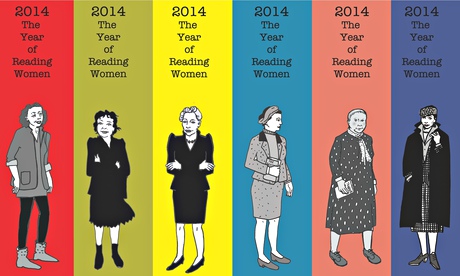
It's a truth universally acknowledged that, although women read more than men, and books by female authors are published in roughly the same numbers, they are more easily overlooked. Their marginalisation by top literary journals, both as reviewers and the reviewed, is confirmed in a yearly count by the organisation Vida: Women in Literary Arts. Perhaps the problem lies not with whether women are published, but how. Read more (via The Guardian)
Even if you don't agree, I think it's a great initiative and a way of discovering and experiencing new literary personalities.
 2
2
Little Women

I have to admit to being drawn to this novel on the promise of plenty of well-drawn, female characters and I wasn't disappointed. The story closely follows the childhood, adolescence and first tentative steps into adult-hood of four sisters: Meg, Jo, Beth and Amy. They reminded me a lot of the Bennet sisters in Pride and Prejudice, not because they were alike in character but because of how each sister had their own unmistakeable quirks and style. I want to keep it brief because I don't want to give anything away but it was just such a warm and cosy book to read. Although it was quite moralistic at times, it was kept on just the right side of saccharine with humour and humanity, and the refreshingly feisty Bluestocking Jo (who is my new role-model for life by the way). Little Women has definitely taken a place in that rather depressing of categories: 'Books I Wish I'd Read Sooner'.
P.S. read with tissues at the ready, it turned into a bit of a cry-fest at times...
The Pursuit of Love
 2
2
Jane Austen, Feminism and Fiction by Margaret Kirkham.
|
'It will not do to approach the female authors of this period and divide them into genuine feminists versus the rest, for at this period to become an author was, in itself, a feminist act.' p.33. |
This is a must read for any Janeite. What I loved most about this book was how it places Austen squarely in the midst of her radical female contemporaries and predecessors, and it gives Jane back her mantle of 'feminist'. Although by today's standards the feminism involved seems rather tame and out-dated, it is there nonetheless. It also debunks a lot of the 'good Aunt Jane' myths which were created by relatives in the Victorian age, or at least provides an alternative viewpoint.
Most importantly it's a nice reminder that we actually know very little about her life, and so excepting conclusions like 'Jane hated Bath' (a theory which is based on the evidence of three letters) is rather rash and unhelpful. The lack of letters from this period has long been attributed to their contents being of an intimate, romantic nature; hence their destruction. However, Kirkham suggests that Jane's period in Bath was a lot more socially and intellectually active than we have been led to believe, for it is 'the one period Austen spent continuously in an urban environment, in contact with a society and culture close to the metropolitan'. There's a good chance she saw many plays, wrote about her opinions on these plays and notable figures she may have met and just generally broadened her literary horizons, yet in Edward Austen-Leigh's 'Memoir' this time is Bath is merely talked of as a time when she 'went a good deal in society, in a quiet way, chiefly with ladies'. As Kirkham remarks, this is a 'masterly dismissal of five vital years in the author's life in such a way as to inhibit further interest in them'.
Anyway, theories abound and I for one find Kirkham's suggestions very persuasive. The rest of the book is full of interesting insights, and I came away with a different view of Jane than when I began reading. If only to be slightly more skeptical of Austen myths which have almost become accepted as fact.
Cider with Rosie.
'Cider with Rosie' was, for me, one of the most evocative books I have ever read. The book is about Laurie Lee's youth in a rural Gloucestershire village after the First World War. Lee recounts a bygone age, where the rural classes were still at the mercy of the seasons and of local superstitions. It is a book of homemade wines, languid summers and rural poverty. You are entirely drawn into the novel from the start by the incredibly insular surroundings of the cramped cottage and the Cotswold valley in which the village sits.
|
'Summer, June Summer,with the green back on earth and the whole world unlocked and seething- like winter, it came suddenly and one knew it in bed, almost before waking up; with cuckoos and pigeons hollowing the woods since daylight and the chirping of tits in the pear-blossom.' p.159 |
The novel is an unrestrained feast for the senses but it is not this alone which charmed me. I live in Worcestershire, a county in Britain which neighbours Gloucestershire and so, inevitably, there was much in the 'Cider with Rosie' which resonated with me. Being awoken my birdsong from May til August, apple-green spring and unrelenting July sunshine where, it seemed, absolutely nothing seemed to happen but summer. It was not only an ode to the countryside though; there was so much of life, death, youth and age to be found too. A vivid recollection of a way of life largely unknown to us now.
 2
2
The Painted Veil
 |
| "Some of us look for the Way in opium and some in God, some of us in whisky and some in love. It is all the same Way and it leads nowhither." |
 1
1
Diary of a Nobody
This is such a fun little read! It was originally published as a serial in Punch magazine in 1892 and despite it's short length it is a masterpiece of comic brevity. Precisely nothing out of the ordinary happens to Mr. Charles Pooter, its the turn of phrase which he uses which had me chuckling to myself. Mr Pooter is so absurdly banal as to call him a characterisation of genius worthy of Dickens himself. I'll leave you with a particularly hilarious extract from the text to give a flavour of the style. Whether we like it or not, we are all a little Pooter...
 1
1
A Moveable Feast.
I have a confession to make. A Moveable Feast is my first ever foray into the realms of Ernest Hemingway. I know, I know, he is a literary legend and I am a poor excuse for a student of literature for not being familiar with his work. The only excuse I can make is that I'm British, and the only books we are exposed to are almost exclusively from English writers, which I do not dispute is a travesty.
"all Paris belongs to me and I belong to this notebook and this pencil"
Having no prior conceptions about Hemingway (other than his fleeting incarnation in Midnight in Paris) I really wasn't sure what to expect. The first thing that struck me was the writing style: stripped back, bare, raw and honest. Unimaginable skill must have gone into every sentence. It is just so easy to get lost in little literary flourishes and lose the impact of authorial intention along the way. Once I got grips with Hemingway's style I was lost in the ancient cobbled streets of Paris, with senses alive to the hubbub of a busy Cafe. I hung on every one of Hemingway's words, and I couldn't believe how descriptive the prose was despite the dearth of adjectives. If you aren't sold on the astonishing quality of the prose alone, then the presence of Scott Fitzgerald, James Joyce and Gertrude Stein should convince any lover of modern literature to take up this worthy little volume. Upon reading, do prepare to die to see 1920s Paris through the eyes of Hemingway.
My eternal desire for book buying has, once again, been satisified for the moment. I think it was the ‘3 books for £1’ which broke me… Anyway, here’s my somewhat eclectic haul this week:
- Dylan Thomas Collected Poems 1934-1952.
- Flowers on the Grass by Monica Dickens.
- The Pursuit of Love by Nancy Mitford. (the only one that strictly speaking I needed to buy…)
- The Painted Veil by W. Somerset Maugham.
- The Princess and the Politicians: Sex, Intrigue and Diplomacy in Regency England, by John Charmley. (a cheeky bit of history for good measure, and who can resist such a title?!)
The Jane Austen Pocket Bible by Holly Ivin

I’ve wanted to check this out for a while but I couldn’t resist when I found it’s only £1 on Kindle! (Zero willpower where books are concerned)
As it turns out, it was money well spent. I’ve loved Jane for many years now and was worried it would merely be reiterating what I’d read elsewhere, but it is full of insights into Jane’s world. From actual stately homes which are reported to have influenced her writing, to the historical context of the period via character breakdowns and their incomes! Recommended reading for any Austen fans out there; seasoned or newcomers!
I live for second-hand book shopping. Whenever I feel the slightest bit down I head straight for the charity shops. Oxfam are particularly good for old and interesting books, including this lovely hardback copy of Brideshead Revisited (which is also beautifully illustrated). To be honest, getting first pick of the donated books is one of the perks of volunteering there;) I’ve also picked up Lark Rise to Candleford, a Penguin book on Victorian Literature and a volume of Jane Austen’s letters! Thoroughly satisfying:)
Up in the Air
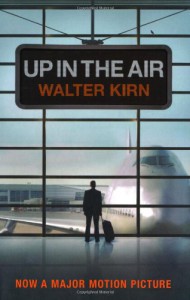
I must admit, this was one of the rare occasions when I watched the film before reading the book. I needn't have worried because the adaptation is almost unrecognisable from the original. Still, it is an excellent film in its own right though (Clooney and Kendrick: the dream team). I found the novel to be incredibly readable on the whole. Admittedly, some of the business jargon and Airworld terminology went over my head and slowed the narrative down a bit. And Ryan Bingham isn't the most likeable or relatable character I've ever come across. However, Ryan's life choice to try and live commitment free in Airworld made for a refreshing read. And, if you want to go that deep, it threw up some interesting perspectives on the modern interpretation of the 'American Dream'.
 1
1
Thick of it: The Missing DoSAC Files
 Note to self: never read this book in public, may look slightly mad chuckling to myself continuously. I flipping love The Thick of It. Favourite tv show of all time.
Note to self: never read this book in public, may look slightly mad chuckling to myself continuously. I flipping love The Thick of It. Favourite tv show of all time.

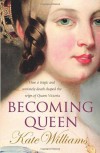









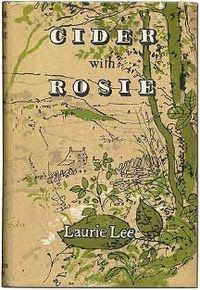
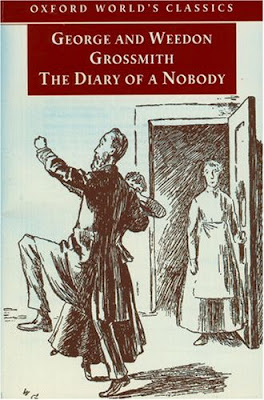





 1
1